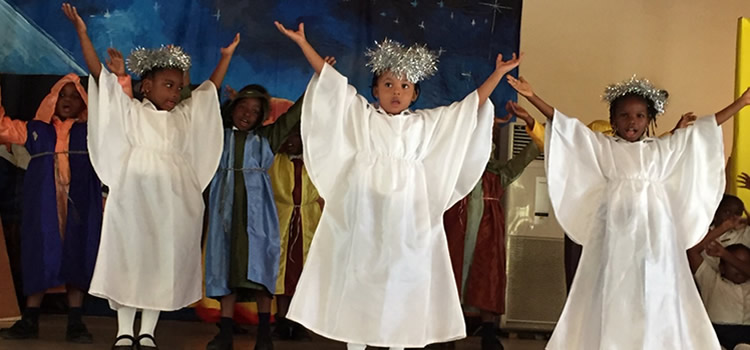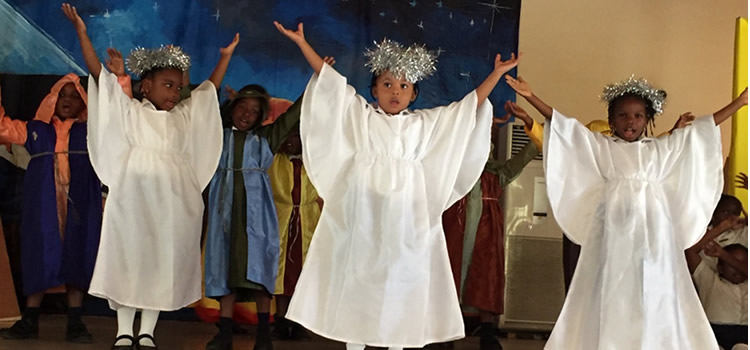Drama is an important element of speaking and listening within the primary curriculum for English. It is also a motivating teaching method appropriate to many subject areas. By teaching through drama, children can become increasingly aware of a range of ways of acting out in order to create, explore and communicate ideas about situations, characters, ideas and emotions.
We teach the following drama skills at Grange.
Acting
Learning objectives:
• We are learning to share ideas with others.
• We are learning to develop problem-solving skills through dramatic activities.
Dance Movement
Learning objectives:
• We are learning to develop rhythm and pace through movement.
• We are learning to use sign, symbol and metaphor.
• We are learning to participate in whole class movement.
• We are learning about movement by working with a partner.
• We are learning to develop an understanding of various heights through movement.
• We are learning to explore a range of movements, using music as a stimulus.
• We are learning to explore a fairy tale through movement.
Improvisation
Learning objectives:
• We are learning to use freeze frame in a range of activities.
• We are learning to use hot seating in a range of activities.
• We are learning to use cross-cutting in a range of activities.
Mime
Learning objectives:
• We are learning to use mime to demonstrate a simple everyday routine.
Key stage 1
Pupils should develop fundamental movement skills, become increasingly competent and confident and access a broad range of opportunities to extend their agility, balance and coordination, individually and with others. They should be able to engage in competitive (both against self and against others) and co-operative physical activities, in a range of increasingly challenging situations.
Pupils should be taught to:
• master basic movements including running, jumping, throwing and catching, as well as developing balance, agility and co-ordination, and begin to apply these in a range of activities
• participate in team games, developing simple tactics for attacking and defending
• perform dances using simple movement patterns.
Key stage 2
Pupils should continue to apply and develop a broader range of skills, learning how to use them in different ways and to link them to make actions and sequences of movement. They should enjoy communicating, collaborating and competing with each other. They should develop an understanding of how to improve in different physical activities and sports and learn how to evaluate and recognise their own success.
Pupils should be taught to:
• use running, jumping, throwing and catching in isolation and in combination
• play competitive games, modified where appropriate [for example, badminton, basketball, cricket, football, hockey, netball, rounders and tennis], and apply basic principles suitable for attacking and defending
• develop flexibility, strength, technique, control and balance [for example, through athletics and gymnastics]
• perform dances using a range of movement patterns
• take part in outdoor and adventurous activity challenges both individually and within a teambr>
• compare their performances with previous ones and demonstrate improvement to achieve their personal best.
Swimming and water safety
Grange School provides swimming instruction in key stage 1 or key stage 2.
In particular, pupils are taught to:
• swim competently, confidently and proficiently over a distance of at least 25 metres
• use a range of strokes effectively [for example, front crawl, backstroke and breaststroke]
• perform safe self-rescue in different water-based situations.



